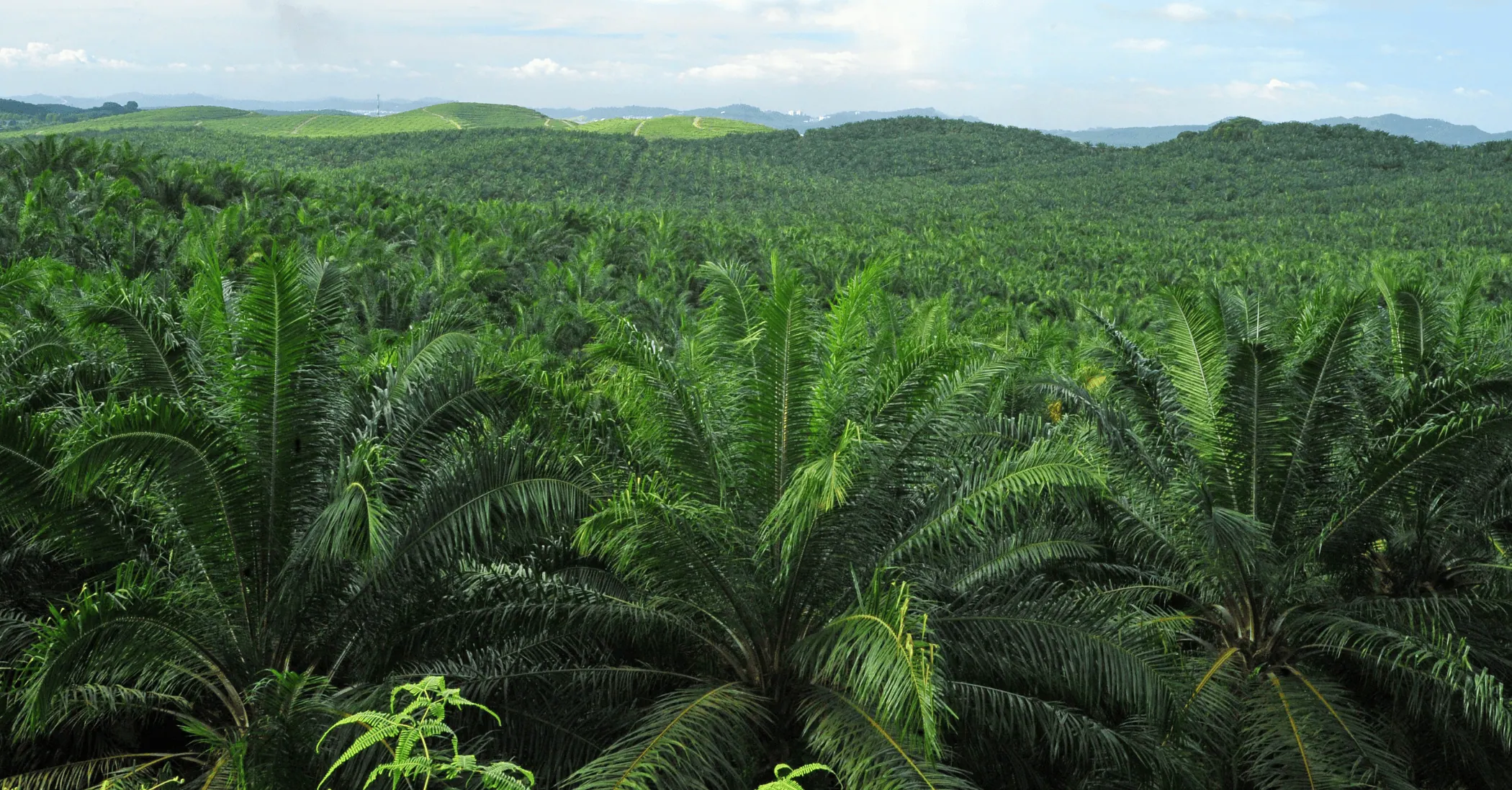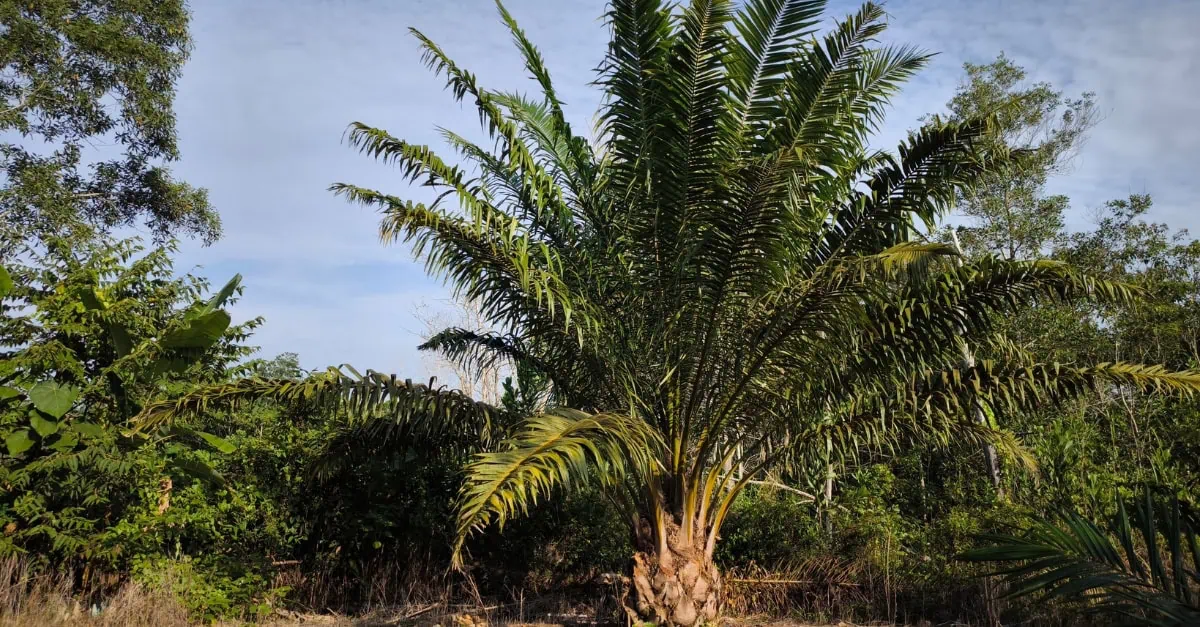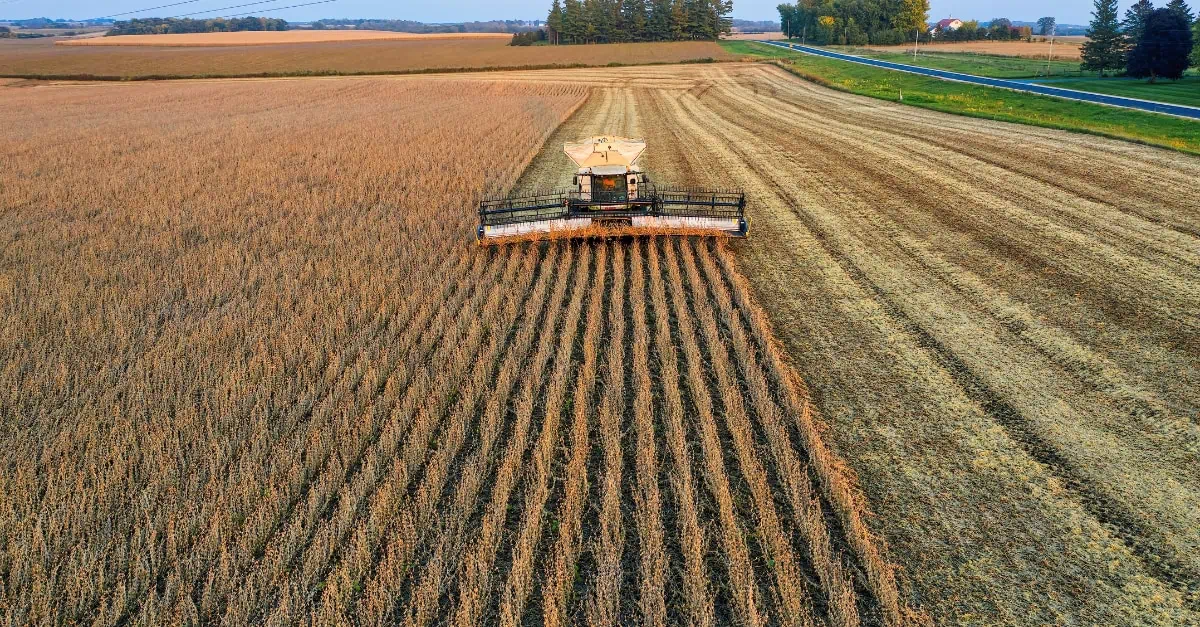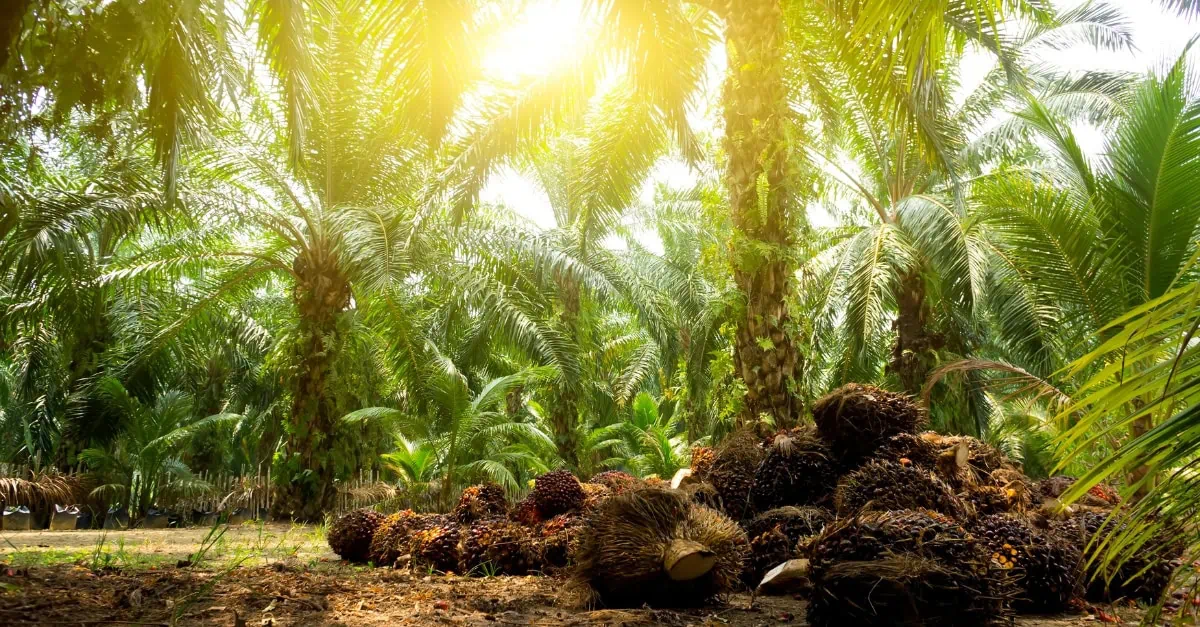Vesper’s machine-learning model predicts a steady decline in the BMD benchmark over the course of 2025.
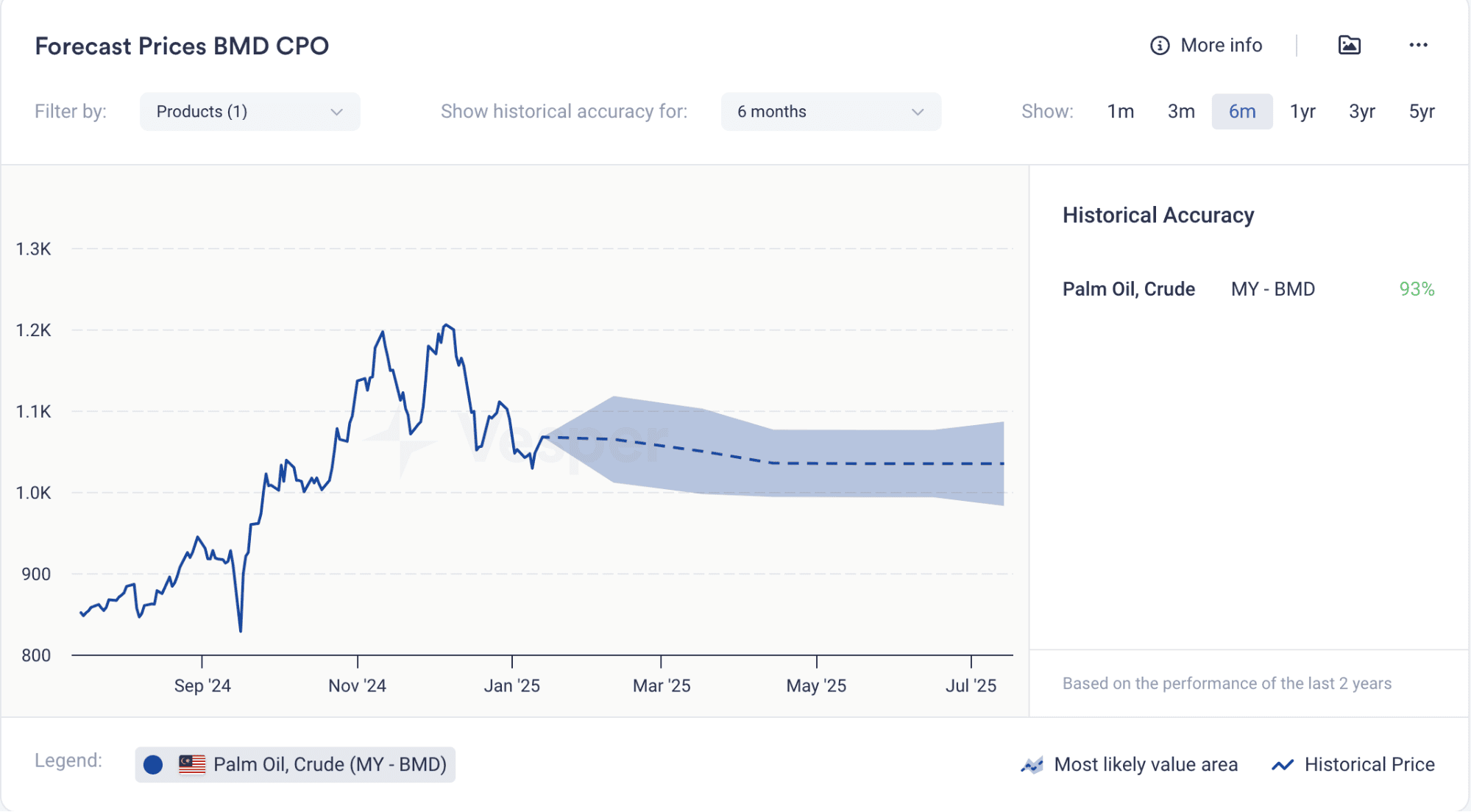
Vesper’s ML Forecast for BMD CPO (USD/mt)
The analytical team and market sentiment agree with the forecast. One of the key reasons is the uncertainty surrounding the smooth implementation of B40 in Indonesia. Initially, the government planned to enforce B40 on January 1st of this year. According to various sources, the increase from B35 to B40 could require an additional 3 million metric tons (mmt) of palm oil per year.
However, in December, the government announced that, due to technical and cost-related difficulties, the implementation date would be postponed to closer to February 28. This announcement shook market confidence and BMD CPO declined. Moreover, the market believes that the implementation will be phased rather than rolled out all at once. Furthermore, analysts are concerned about the government’s plans to subsidize B40 only for non-industrial use, which accounts for less than half of the country’s demand.
“B40 makes palm oil too expensive, turning it into ‘olive oil,’ says RKS Insights to Vesper. Biodiesel costs $300/ton more than CPO, leading many Indonesian blenders to opt for penalties over complying with even a 35% blend. As a result, short-term biodiesel usage reduces fears of a crude palm oil shortage. With Indonesia’s biodiesel subsidy limited to the government sector, production may not increase significantly. “Blenders are expected to continue paying penalties until palm oil prices stabilize,” according to the agency.
Stay tuned for more updates on global commodity markets or access all our market analysis by creating a free trial account here.
